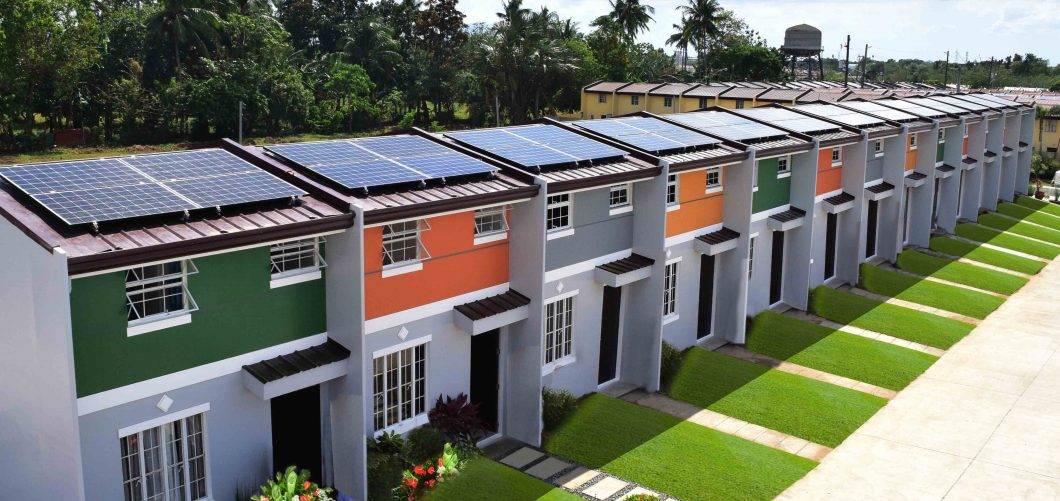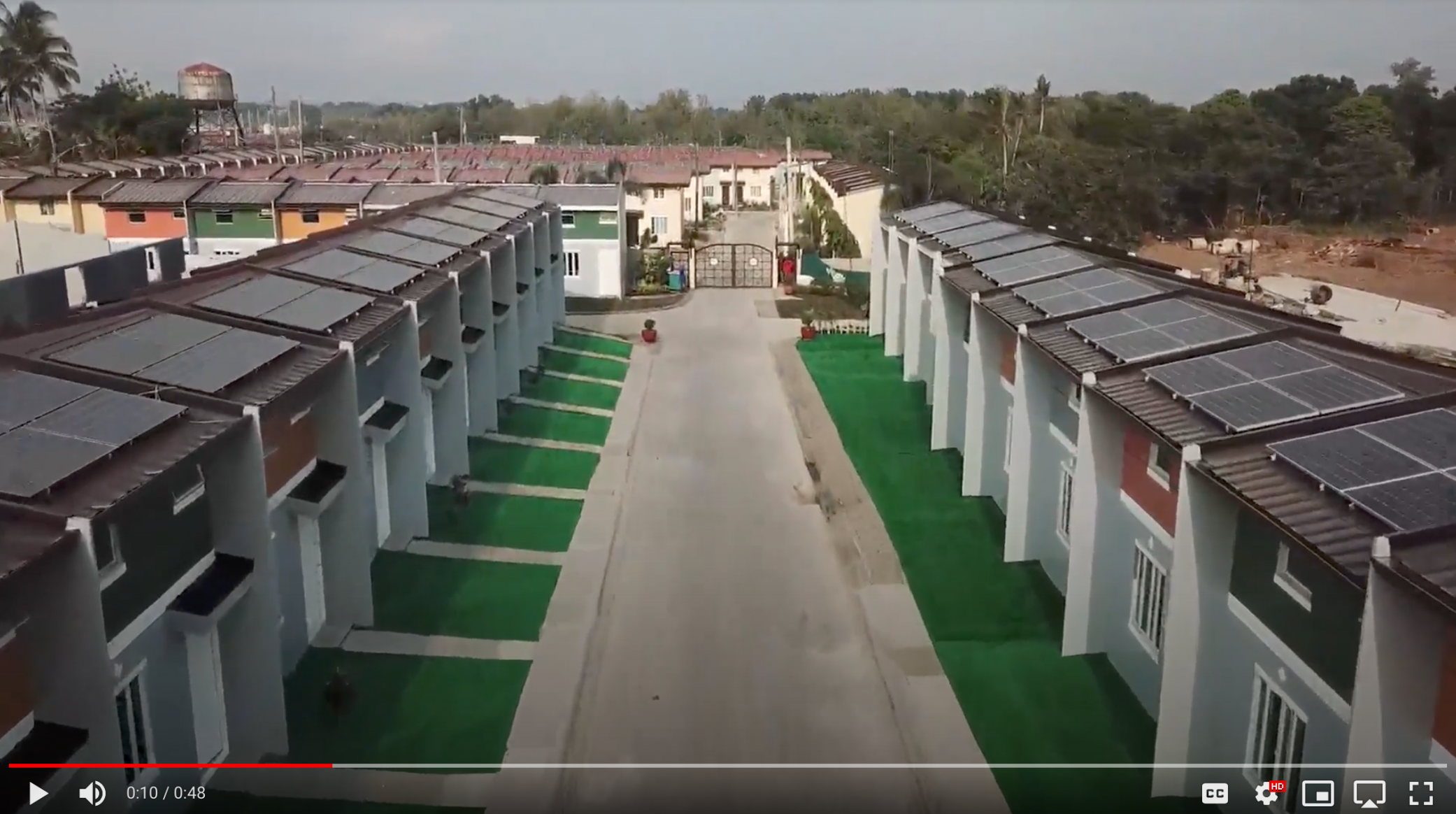
The Asia-Pacific Housing Forum’s Innovation Awards have been organised by Habitat for Humanity in collaboration with the Hilti Foundation, Whirlpool and the European Union-funded SWITCH-Asia SCP Facility to recognise and celebrate innovators in the affordable housing sector. Startup and scale-up companies, policymakers and advocates, architects and engineers were invited to submit their sustainable and practical solutions for affordable housing across three main award categories: ShelterTech, Public Policies, and Inspirational Practices.
The EU and its SWITCH-Asia Programme recognise the critical importance of the housing sector to sustainable consumption and production, and promote sustainable housing and buildings as part of their support for green, circular economies in its 24 target countries in Asia. Hence, a special Sustainability Award, sponsored by the SWITCH-Asia SCP Facility, was also given to three innovators who scored highest in showcasing scalable solutions for sustainable housing. One of the winners under the “Public Policies” category is the BALAI BERDE Programme in the Philippines.
The Key Shelter Agencies in the Philippines and the Department of Human Settlements and Urban Development (DHSUD) formally launched the BALAI Housing Programme on 18 October 2017, with their respective mandates and commitments to engage in building sustainable Filipino communities. The BALAI programme stands for Building Adequate, Livable, Affordable, and Inclusive Filipino Communities. Moreover, as part of the National Home Mortgage Finance Corporation’s (NHMFC) commitment to further contribute to the Sustainable Development Goals, the liquidity facility for housing loan originators called BALAI BERDE was initiated to support the housing sector in its efforts to deliver green, safe and secure housing projects. The BERDE stands for Building Eligible Resilient Dwelling for Everyone.
Faced by rapid urbanisation, population growth and challenging conditions of those who have lost their homes due to natural disasters, the Philippines is among the most vulnerable countries to climate-related weather events. Its housing backlog stood at 6.75 million units as of September 2020, and this number could potentially increase to 22 million units by 2040 if the housing problem is not properly addressed.
Owning a decent yet affordable house is a common aspiration of every Filipino family. However, the majority of the housing development in the country is currently not being done sustainably, posing great challenges and pressures on both the environment and people’s health and well-being. As cities continue to grow, and temperatures continue to rise, the real estate and financial sectors must lead the way on climate action.
Green buildings are more ecological and cost-effective. They use 25% – 35% less energy than conventional buildings and almost 40% less water if water saving strategies are in place. This also means smaller electricity and water bills for those who will live in such buildings, and also less dependence on energy imports. To help address the homelessness and climate change crisis in the Philippines and contribute to the attainment of SDG 11 – to make cities and human settlements inclusive, safe, resilient and sustainable – NHMFC has found new ways to work with developers to build, construct and retrofit affordable and environmentally friendly homes for disadvantaged and marginalised communities in the Philippines.
We need to immediately and drastically change how we design, build, use and deconstruct buildings to make them sustainable, environment-friendly and disaster-resilient homes, stressed Cecile Malota, Head of NHMFC's BERDE Unit.
Through the BALAI BERDE programme, originators are able to secure green financing for their homebuyers by purchasing their contract receivables, creating a more viable scheme, allowing easy access for every Filipino into a sustainable community. As more home buyers get access to sustainable and resilient homes, the market will become more interested in investing in eco-friendly houses, ultimately forcing real estate developers to switch to innovative technologies.
Conceived as a new financial instrument, the BALAI BERDE programme was designed to increase capital allocations for green projects that contribute to environmental sustainability and resiliency. The Programme offers a loan up to 100 percent of the appraised value or up to P3 million pesos, with a term of five to 30 years and a fixed interest rate of 3 percent to 6 percent. An interest subsidy scheme is designed also for the BALAI BERDE to make green housing affordable and within the repaying capacity of the marginalised sectors or the low income group under Decile 1 to 6, as defined by the Philippine Statistics Authority. This scheme is meant to encourage poor sections to avail of loan facilities through originators and avail from 0.5 to 1 percent subsidy in interest payment for the first 10-year term of the housing loan.
Another demonstration of NHMFC’s commitment to leading and innovating in green finance is the issuance of green bonds or the so called BALAI BERDE Bonds pooled from existing housing receivables. The securities from the bond issuance shall be classified as “Green Bonds” which comply with the ASEAN Green Bonds Standards (GBS), wherein proceeds shall be earmarked exclusively to finance or refinance new and existing eligible “green projects” that meet regional, national or internationally recognised standards or certifications.
The housing receivables pooled from the BALAI BERDE Programme shall be used for the succeeding securitization backed by green mortgage backed securities. Furthermore, the NHMFC has partnered with th Excellence in Design for Greater Efficiencies (EDGE) to independently verify and certify that the green and sustainable standards are met and that at least 20% efficiency for energy use, water and embodied energy in materials compared to baseline building is achieved. With this green building certification, investors are offered a reasonable way to positively support sustainability while investing in a relatively low risk or low-yield instrument. These innovative financial products will increase the needed funds to keep the housing sector vibrant in the Philippines.
Related articles
Watch the Video



